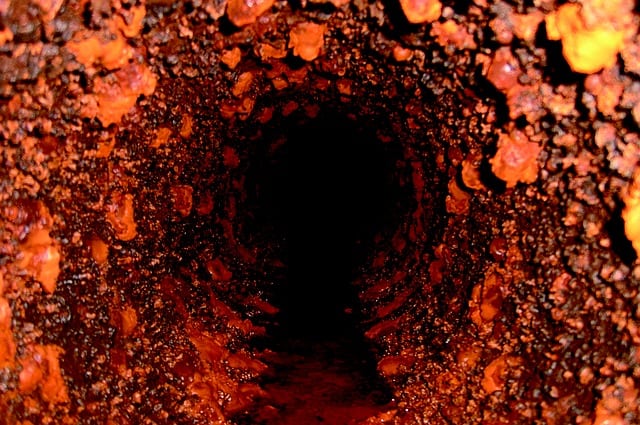Industrial plumbing pipes come in a truly bewildering range of materials, shapes, sizes and functional uses. If you’re unfamiliar with these pipes, we’ll give you a tour of the fundamentals. You’ll be truly surprised at the sheer scale and range of applications of these innocuous-looking pipes.
Industrial Plumbing Pipes Basics
Industrial plumbing pipes are selected on the basis of their usage. This may include several basic types:
- Water pipes designed to take enormous volumes of water
- High pressure pipes
- Chemical treatment pipes to handle movement of chemicals through an industrial process, therefore needing to be secure and leakproof
- Hot water pipes must be able to handle specified temperatures and often very high volumes of water
- Effluent pipes
- Basic onsite plumbing pipes
- Mains connections pipes, which may take huge volumes of water under pressure
A single industrial plant may include all these “species” of pipes under the same roof.
Types of Pipes and Pipe Materials
Industrial plumbing pipes may be made out of a wide range of materials, depending on their usage:
- Concrete pipes: Usually relates to mains, and very high volume underground flow. These pipes are the traditional infrastructural pipes, and are usually very reliable for many years without major issues.
- PVC/ “Plastic” pipes, or polymer pipes: Lightweight, non-corrosive, and highly versatile, PVC pipes are now common in just about all industrial plumbing systems, used for everything except where special needs apply.
- Copper pipes: Tough and highly efficient, copper pipes cover a range of functions, notably hot water, and are still used today for a variety of applications because of their reliability and longevity.
- Steel/carbon pipes: Steel pipes have multiple uses, and can be constructed into very large sizes, hence their widespread use in industrial plumbing systems. They’re “all-rounders” in many system designs.
- Fibreglass: A very dense, tough material, fibreglass pipes are used in various applications, but not as common as other types.
- Lead pipes: The old pipes of past centuries, lead pipes are being phased out worldwide.
- Iron pipes: Now largely obsolete, but still used in many applications for their toughness.
Pipe System Design
Industrial plumbing pipe system designs are very much like a “flow chart”, pun intended. These systems are naturally integrated, using mains and other connections to map out water flow. The trick with pipe system design is to create the most efficient design, minimising waste and improving operational efficiencies in water usage.
The pipe system design, in effect, is a map of onsite usage. You’ll see water pipes, chemical pipes, effluent pipes and specialised pipes for processing. It’s a fascinating study, if you follow the process from start to finish.
Need Help with Industrial Plumbing Pipes in Brisbane?
Whenever you want expert pipe installation and system design in Brisbane, Electrical Plumbing Group (EPG) are your instant solution, from design to installation. Our expert industrial and electrical plumbers will deliver a fabulous modern pipe system, with all the best specifications and compliance built in. For premium Brisbane plumbing designs, call (07) 3823 1630 or contact us online.



Leave a Reply